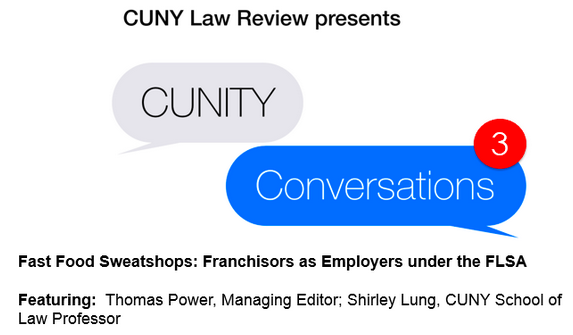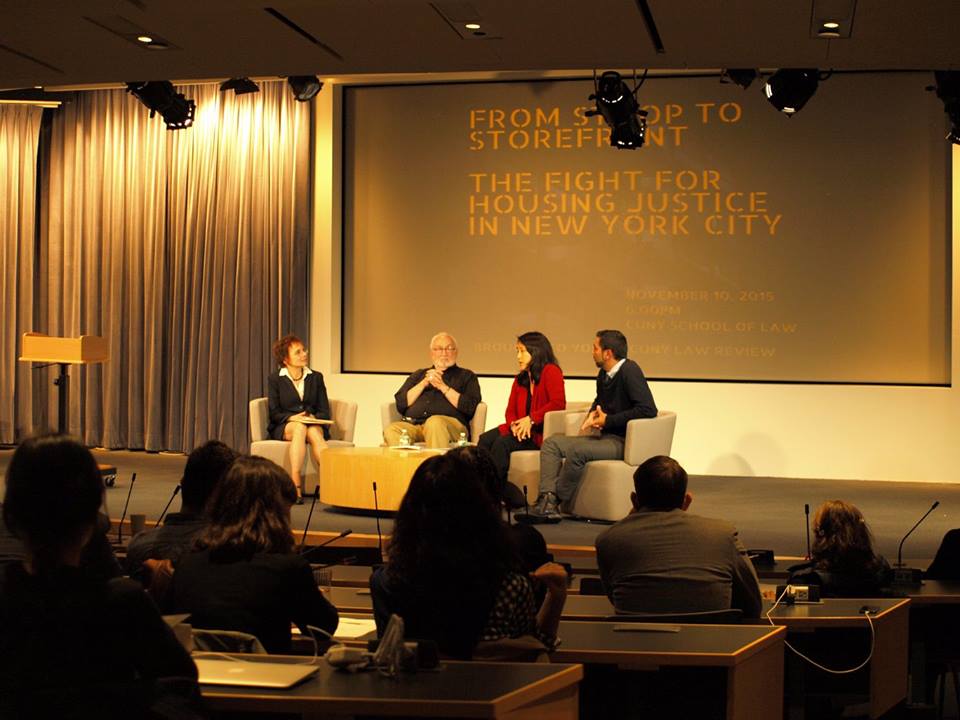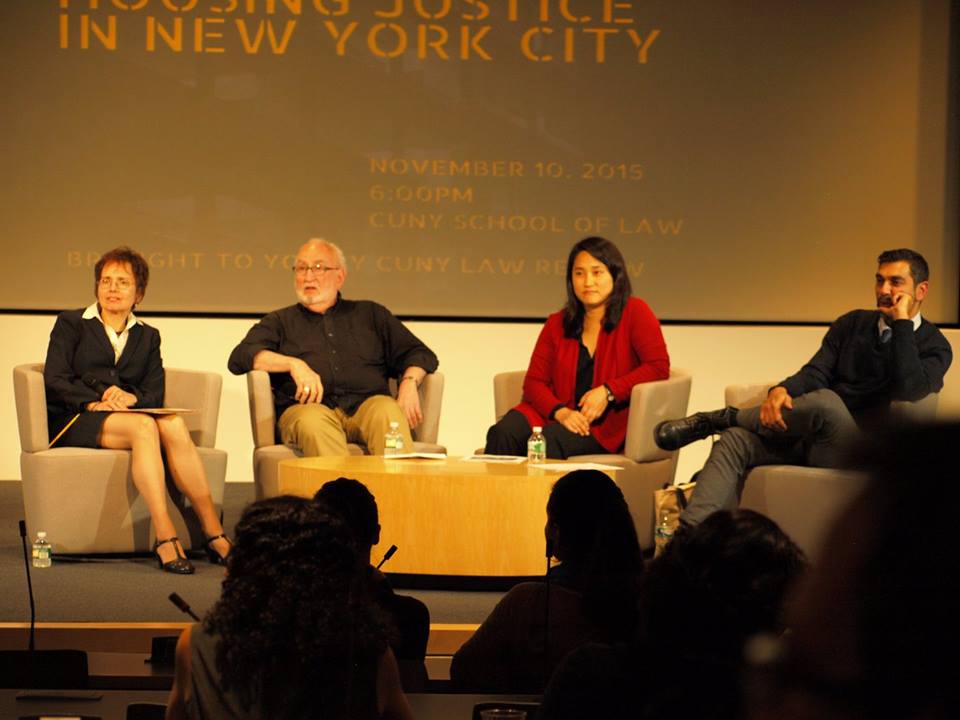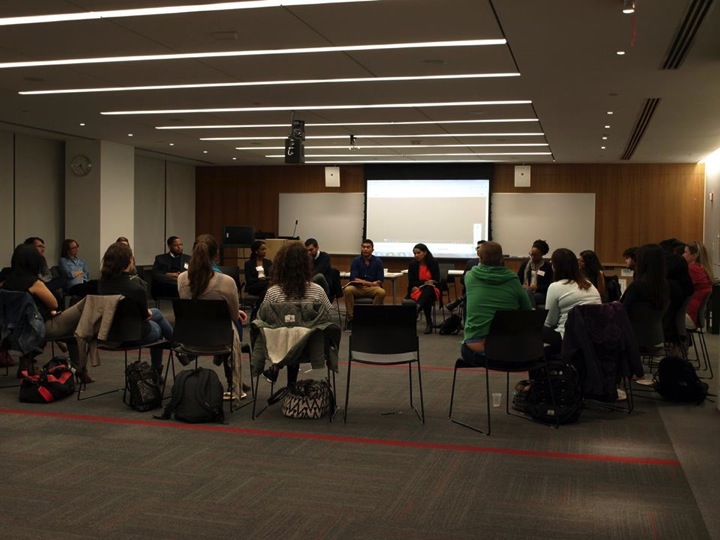The CUNY Law Review invites the CUNY Law Community to join us at this year’s
first CUNITY Conversation on THURSDAY, FEBRUARY 25th at
7:00pm in Room 1-205!
The CUNITY Conversation Series features our student
authors, who will have their scholarly articles published
in an upcoming edition of the CUNY Law Review. This event
gives the student body an opportunity to engage with the
student author’s ideas and creates a conversation around
interesting issues in public interest lawyering.
This CUNITY Conversation will feature our own
Managing Editor, Tom Power, whose article, Fast Food
Sweatshops: Franchisors as Employers Under the FLSA,
will be published in the CUNY Law Review this summer. He
will be joined by Professor Shirley Lung, and they will
facilitate a conversation on the legal issues discussed in
the Note, specifically the challenges that low-wage
workers face when they try to bring lawsuits against their
corporate franchisor employers.
Wine and food will be served!
We look forward to seeing you all there!




